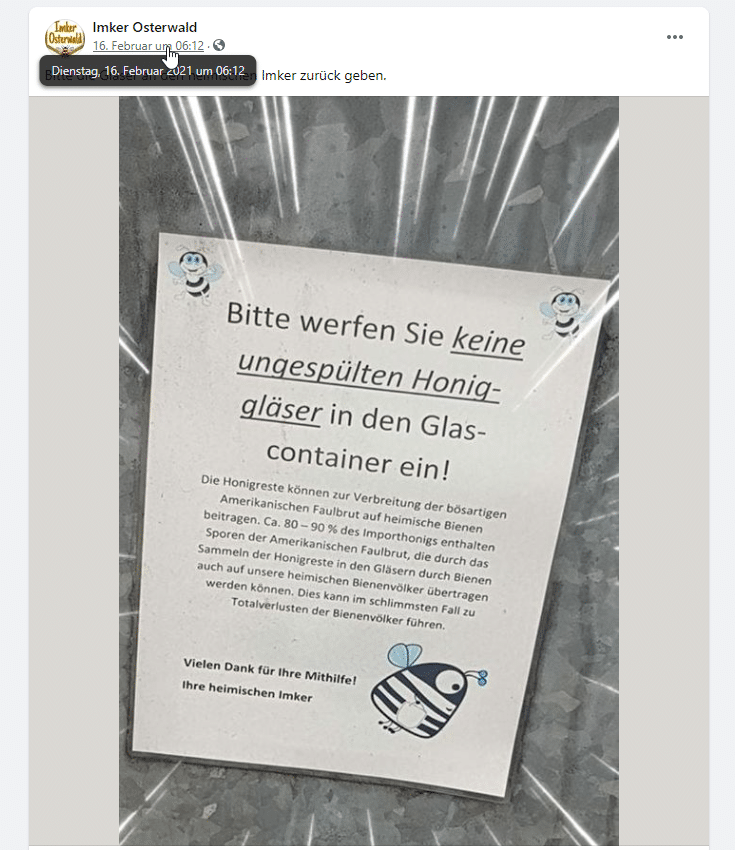“Please do not throw unwashed jars of honey into the glass container!” asks a Facebook status post that is shared on Facebook again and again at this time every year.
Rinse honey jars to save bees? We published a fact check on this topic for the first time in 2019. And this status post, published by a beekeeper, is also making the rounds on Facebook in 2021:

Can American foulbrood really pose a threat to our native bees?
First of all: The statement is not a fake. The warning about American foulbrood is not new. The Hauenstein beekeeping association wrote in 2015:
In the case of the four acute cases of American foulbrood in the Waldshut district in May 2015, press releases repeatedly pointed out that imported honey could have been a very likely source of infection for this bee disease. Depending on the country of origin, honey can actually be highly infectious for bees and cause an epidemic. Honey jars that are not completely emptied and rinsed out in the trash (or in an environmentally friendly glass container) pose a deadly threat to local bees.
What is American Foulbrood?
The Healthy Bees website writes:
The American foulbrood pathogen forms very resistant spores that only infect the honey bee larvae through the food they eat. The spores reach the midgut with food, where they germinate into rods within 24 hours. These then penetrate the intestinal epithelium to multiply quickly in the remaining tissue of the larva. The brood then dies in the maggot or prepupal stage and thus in the capped cell. Foreign honey, especially imported honey, which is fed to the bees, also represents a significant source of infection.
You should definitely wash the honey jar thoroughly before throwing it into a recycling container!
Result:
The statement is not fake. Bees can infect their brood with the remaining honey collected from imported jars. Even if consuming honey contaminated with foulbrood spores is not dangerous for the consumer, you should rinse your honey jars thoroughly to prevent entire colonies from dying.
Item image: Shutterstock / By Charactoon design
Notes:
1) This content reflects the current state of affairs at the time of publication. The reproduction of individual images, screenshots, embeds or video sequences serves to discuss the topic. 2) Individual contributions were created through the use of machine assistance and were carefully checked by the Mimikama editorial team before publication. ( Reason )

